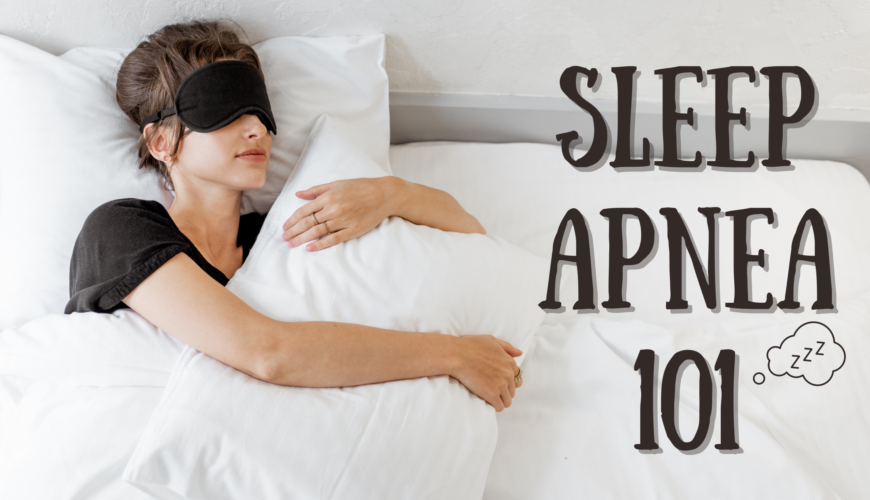We’ve all been there before – waking up groggy to an alarm clock ringing a bit too early, wishing for just a few more minutes of sleep. Whether it be due to demanding schedules, night owl tendencies, or a sleep disorder, many struggle to get a restful 8 hours of sleep each night.
Did you know that there are over 70 diagnosed sleep disorders? Sleep disorders are often classified into one of three categories: lack of sleep, disturbed sleep, and excessive sleep. If you or a loved one is not sleeping well, read on to learn all about sleep apnea, one of the most common disturbed sleep disorders that 1 in every 15 Americans live with.
What is Sleep Apnea?
Sleep apnea is a serious sleep disorder in which breathing patterns are disrupted, causing an individual to stop and start breathing repeatedly. There are three different types of the disorder: obstructive sleep apnea (OSA), central sleep apnea (CSA), and mixed sleep apnea. OSA is caused by a physical blockage in the airway at the back of the throat. CSA occurs when the brain system controlling respiratory muscles fail, causing slower and shallow breathing. As the name suggests, mixed sleep apnea is diagnosed when an individual has both OSA and CSA.
Symptoms of Sleep Apnea
Symptoms of sleep apnea during sleep include loud snoring, gasping for air, or choking. Upon awakening, individuals may experience a dry mouth, sore throat, or headache. Throughout the day, people with sleep apnea may experience irritability, foggy thinking, limited attention span, and sleepiness throughout the day. It may seem unusual for one to not notice that they are choking during sleep, but many people with sleep apnea fall back asleep so quickly that they are unable to identify their own symptoms. For this reason, a partner is often the one to point out the unusual sleeping habits leading to a sleep apnea diagnosis.
Complications and Risk Factors of Sleep Apnea
A person can develop sleep apnea at any age, but there are certain risk factors that increase the likelihood of a diagnosis. Certain risk factors unfortunately cannot be avoided, such as older age, being male, having an inherited narrower airway, or having a family history of the disorder. However, there are several risk factors to be aware of that can potentially be avoided. Obesity greatly increases the chances of developing sleep apnea, as fat deposits around the upper airways can obstruct breathing. Additionally, alcohol relaxes the muscles in the throat, and smoking cigarettes causes inflammation and fluid buildup in the airways. Since sleep apnea impacts the oxygen balance within the body, sleep apnea can lead to many different types of cardiovascular issues. These issues can include but are not limited to high blood pressure, heart attack, heart disease, and stroke. Maintaining a healthy lifestyle can help prevent the diagnosis of many serious health issues, and sleep apnea is no different.
If you or a loved one is living with sleep apnea, consider a clinical trial with Preferred Research Partners in Little Rock, Arkansas. You may be eligible to receive treatment at no cost to you and contribute to the advancement of medical research!

